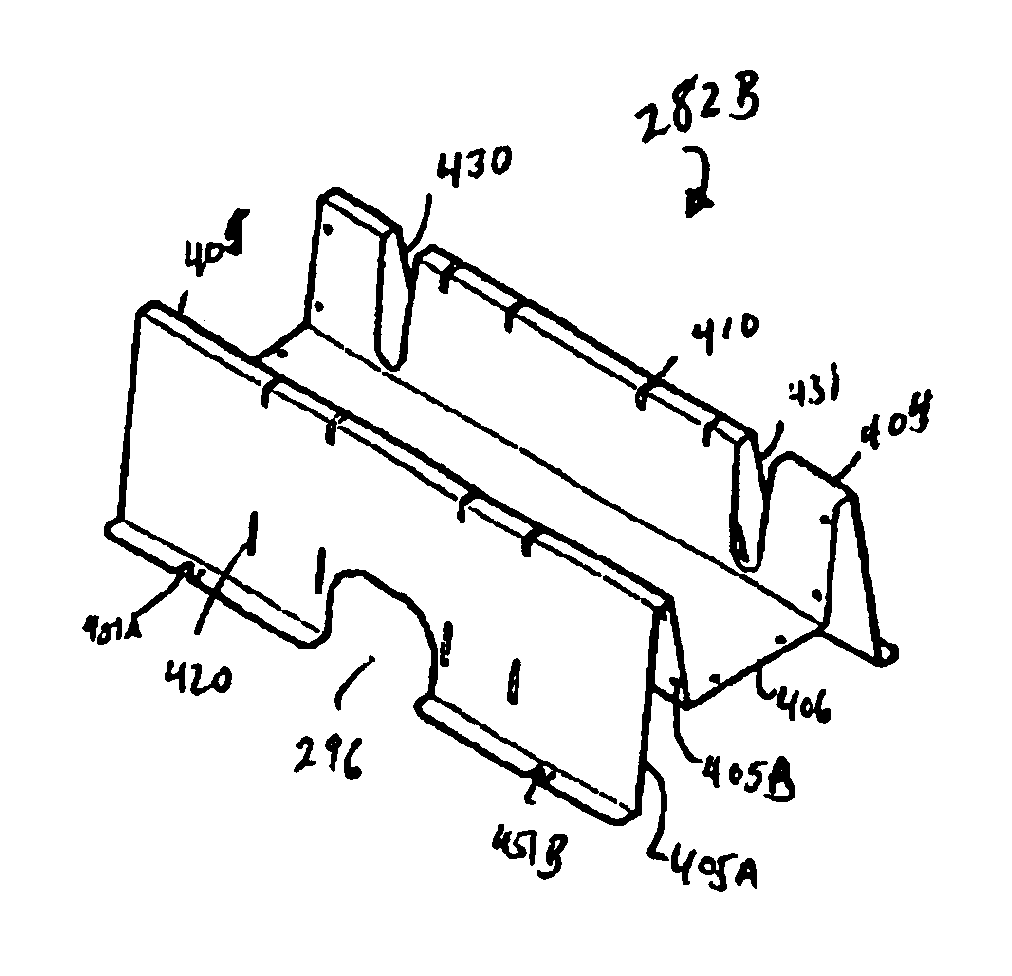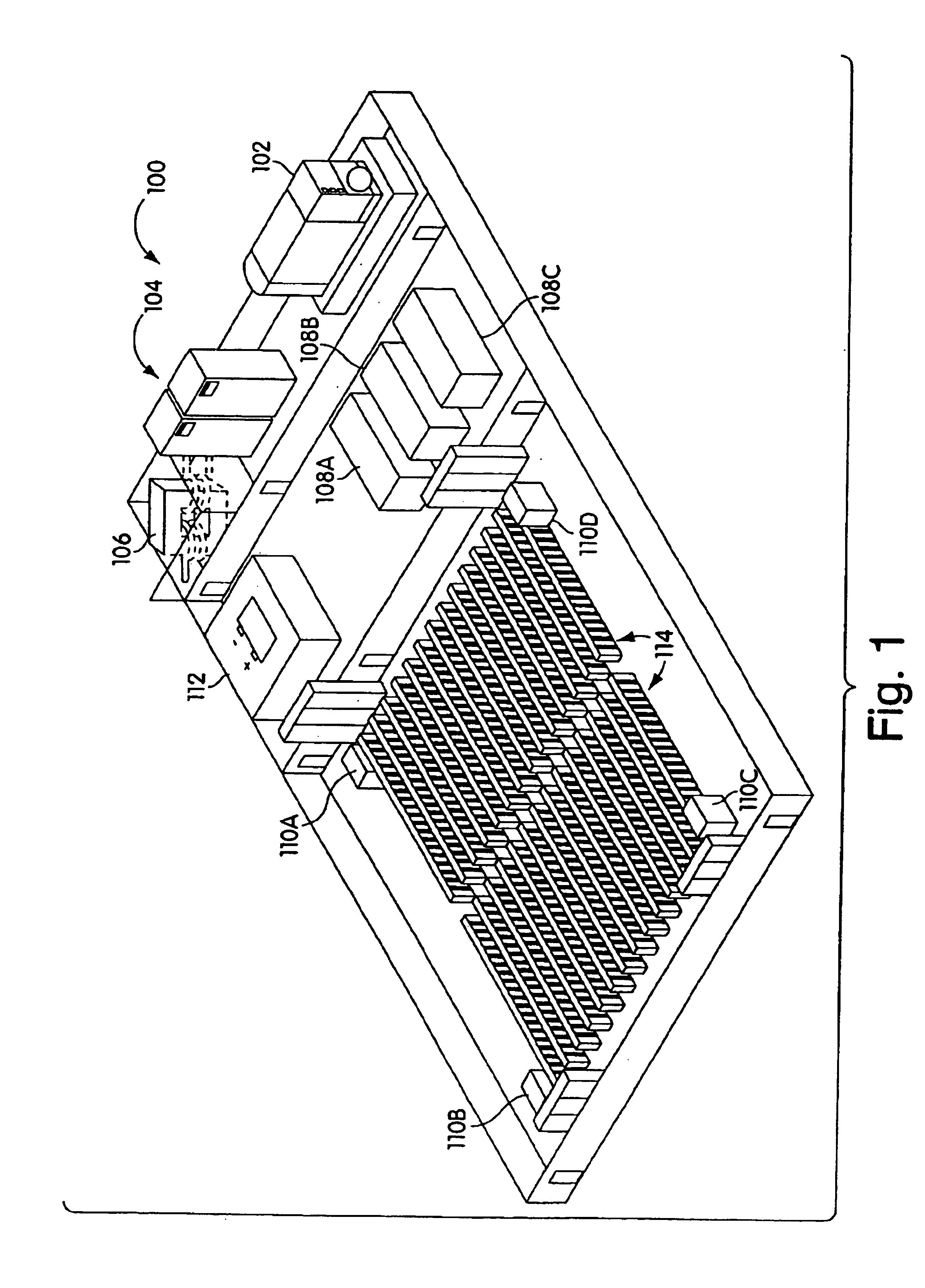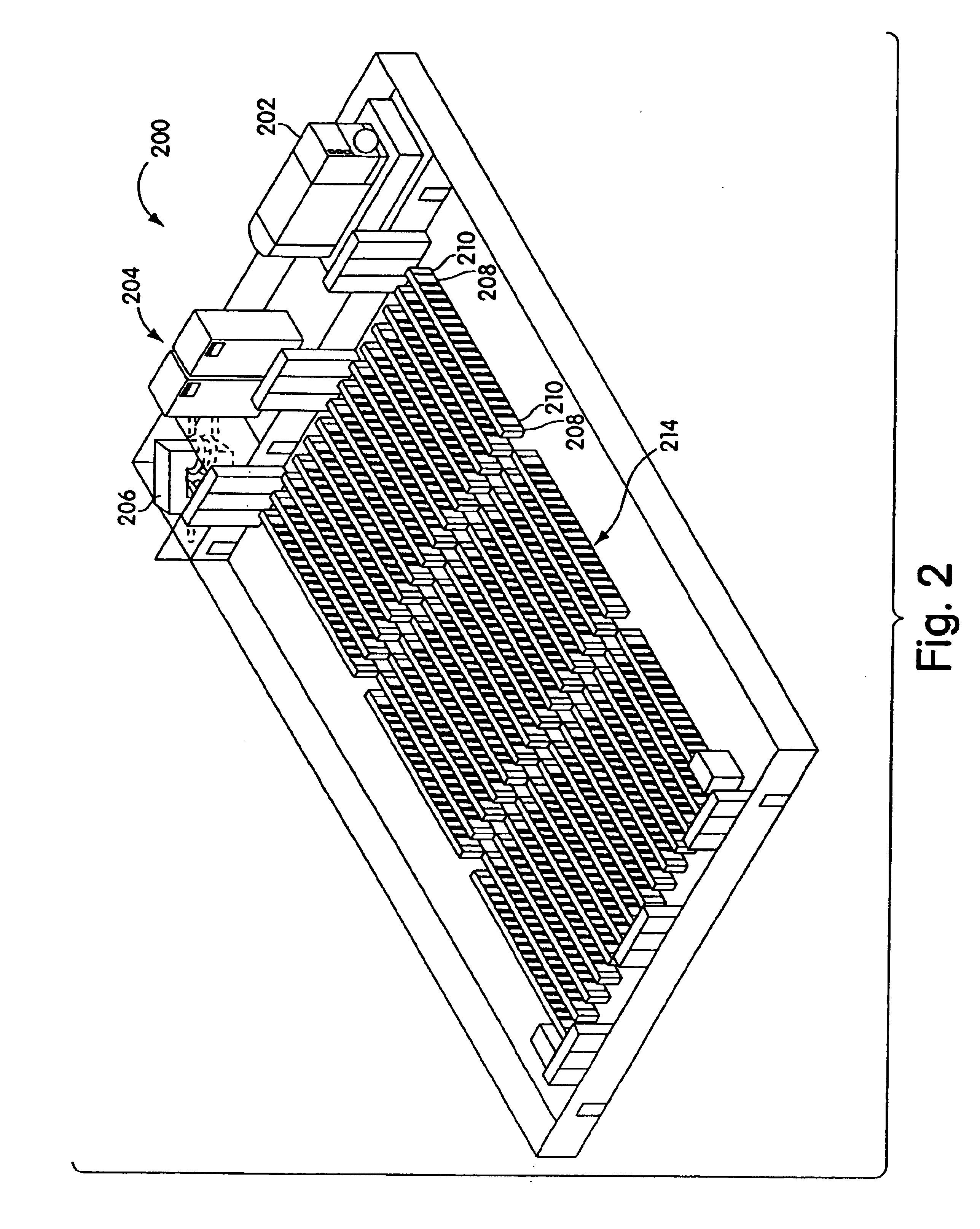Toolless mounting system and method for an adjustable scalable rack power system
a rack power system and adjustable technology, applied in the direction of insulated conductors, cables, instruments, etc., can solve the problems of rats' nests, difficult, if not impossible, to locate particular cables beneath the raised floor, and high cost of raised flooring
- Summary
- Abstract
- Description
- Claims
- Application Information
AI Technical Summary
Benefits of technology
Problems solved by technology
Method used
Image
Examples
Embodiment Construction
[0043]Embodiments of the present invention overcome problems associated with data centers described above by providing adaptable power distribution and equipment mounting systems for computers and other electronic devices.
[0044]FIG. 1 shows a diagram of the layout of a typical data center 100. The data center 100 includes a generator 102, high power switchgear 104, a transformer 106, three UPSs 108A, 108B and 108C, four power distribution units (PDU) 110A, 110B, 110C and 110D, a battery or bank of batteries 112, and twenty-eight rows 114 of racks of equipment. In the data center 100, the transformer 106 is used to lower the voltage of power received from outside the facility or from the generator to a voltage level of typically 480 volts. The switchgear provides switching of the power between the generator and an outside power source and the UPSs. The UPSs in conjunction with the battery 112 provide uninterruptible power to each of the PDUs. Each PDU typically contains a transformer...
PUM
 Login to View More
Login to View More Abstract
Description
Claims
Application Information
 Login to View More
Login to View More - R&D
- Intellectual Property
- Life Sciences
- Materials
- Tech Scout
- Unparalleled Data Quality
- Higher Quality Content
- 60% Fewer Hallucinations
Browse by: Latest US Patents, China's latest patents, Technical Efficacy Thesaurus, Application Domain, Technology Topic, Popular Technical Reports.
© 2025 PatSnap. All rights reserved.Legal|Privacy policy|Modern Slavery Act Transparency Statement|Sitemap|About US| Contact US: help@patsnap.com



